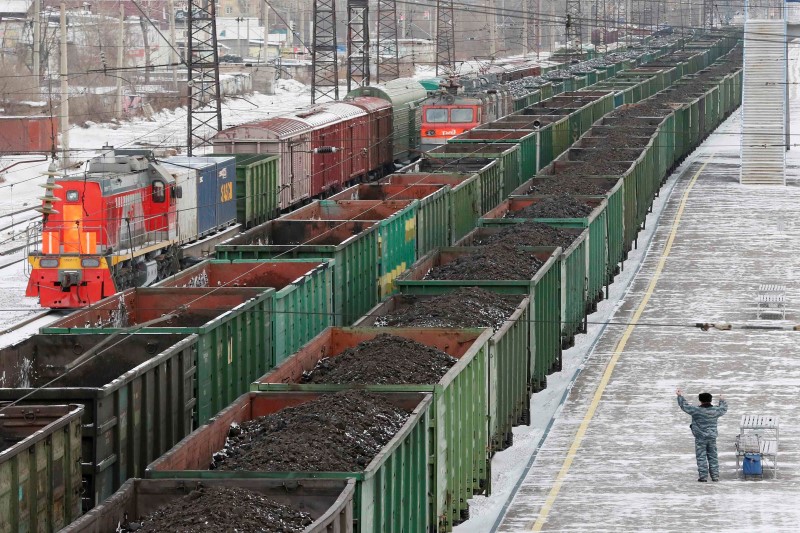MOSCOW/KIEV (Reuters) - Russia has agreed on a new deal to supply coal and electricity to Ukraine, which is struggling with a lack of raw fuel for power plants due to a separatist conflict in the industrial east, Russian officials said on Saturday.
The move comes a day after Kiev said it would suspend train and bus services to Crimea, effectively creating a transportation blockade to and from the region annexed by Moscow in March this year. Kiev has briefly cut off electricity to Crimea before.
Russia will supply coal and electricity to Kiev without advance payment as a goodwill gesture from President Vladimir Putin, his spokesman Dmitry Peskov told TASS news agency.
"Putin made a decision to start these supplies due to the critical situation with energy supplies and despite a lack of prepayment," Peskov said.
Russia plans to supply 500,000 tonnes of coal to Ukraine per month, Deputy Prime Minister Dmitry Kozak told Rossiya 24 television. It is ready to supply another 500,000 tonnes per month if an additional agreement is reached, he added.
Ukraine's coal reserves stand at 1.5 million tonnes compared with normal winter stocks of 4-5 million tonnes, according to energy ministry data.
The country used to be self-sufficient in electricity, but months of fighting a pro-Russian uprising has disrupted coal supplies to thermal power plants, which had generated around 40 percent of its power.
Last week Ukraine's energy minister, Voldymyr Demchyshyn, said he was holding talks with Russia's energy ministry on coal and power supplies. Earlier attempts to import Russian coal have been hampered by supplies being held up at the border.
Supplies will come at Russian domestic prices, Kozak said, adding that he hoped the move would help ensure reliable energy supplies to Crimea.
He did not say whether the transportation hold-ups at the border had been resolved.
Russia will also supply electricity to Ukraine, Kozak said, without giving supply volumes.

Kiev's pro-Western government has accused Russia of orchestrating the rebellion in Ukraine's east, a charge Moscow denies.
(Reporting by Polina Devitt and Alessandra Prentice; Editing by Hugh Lawson)